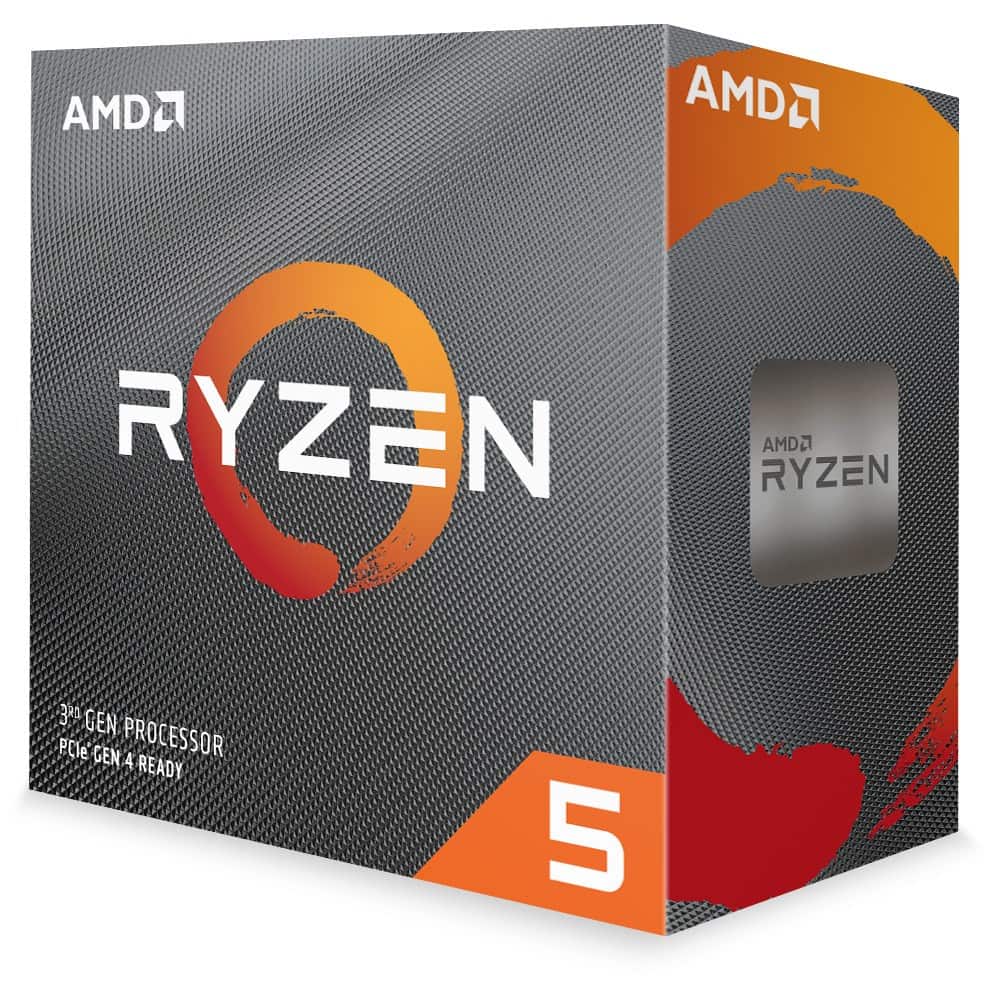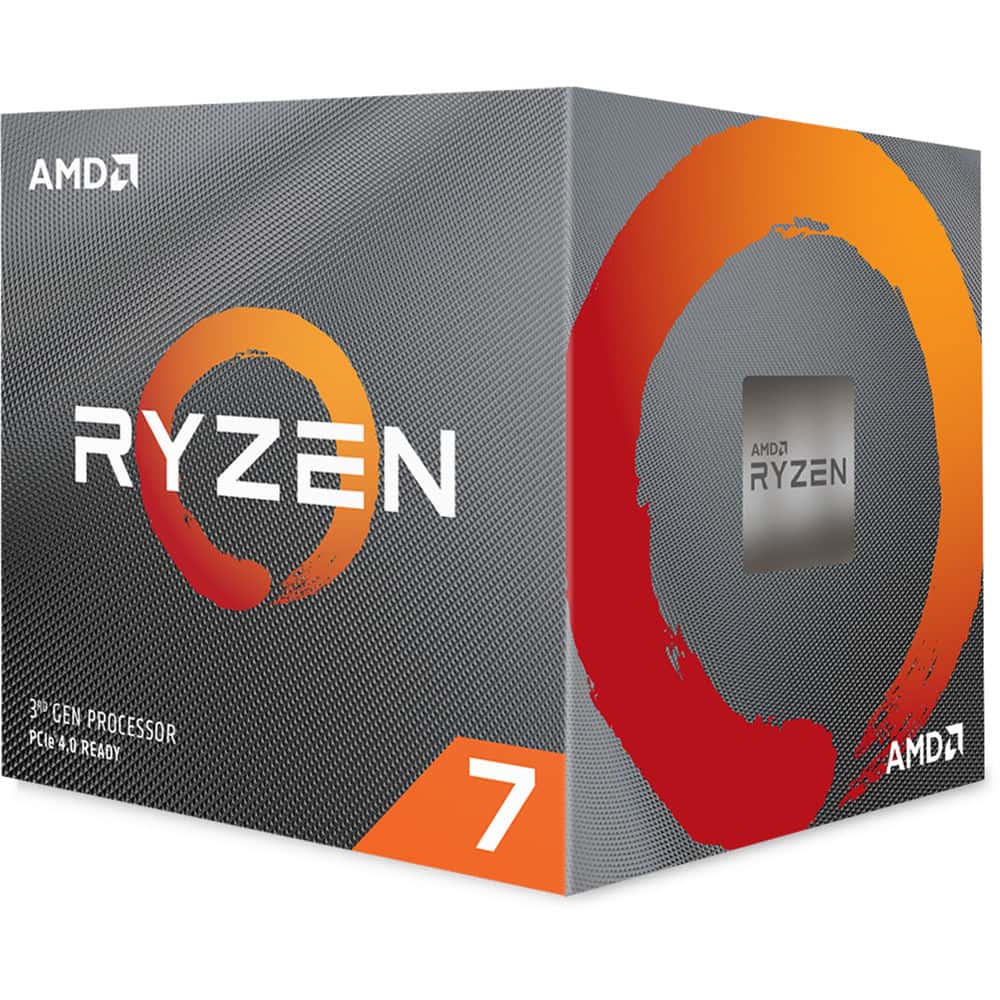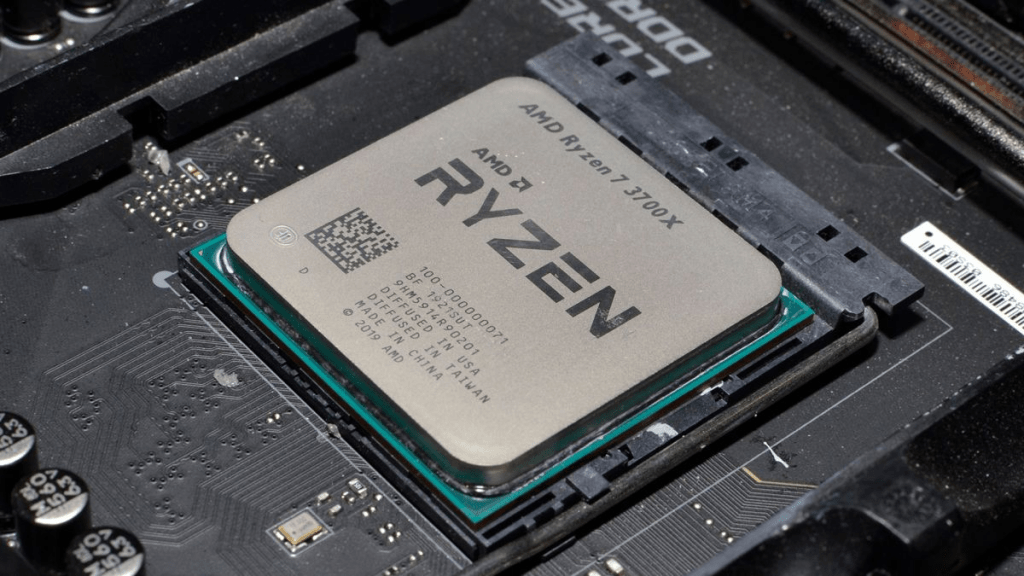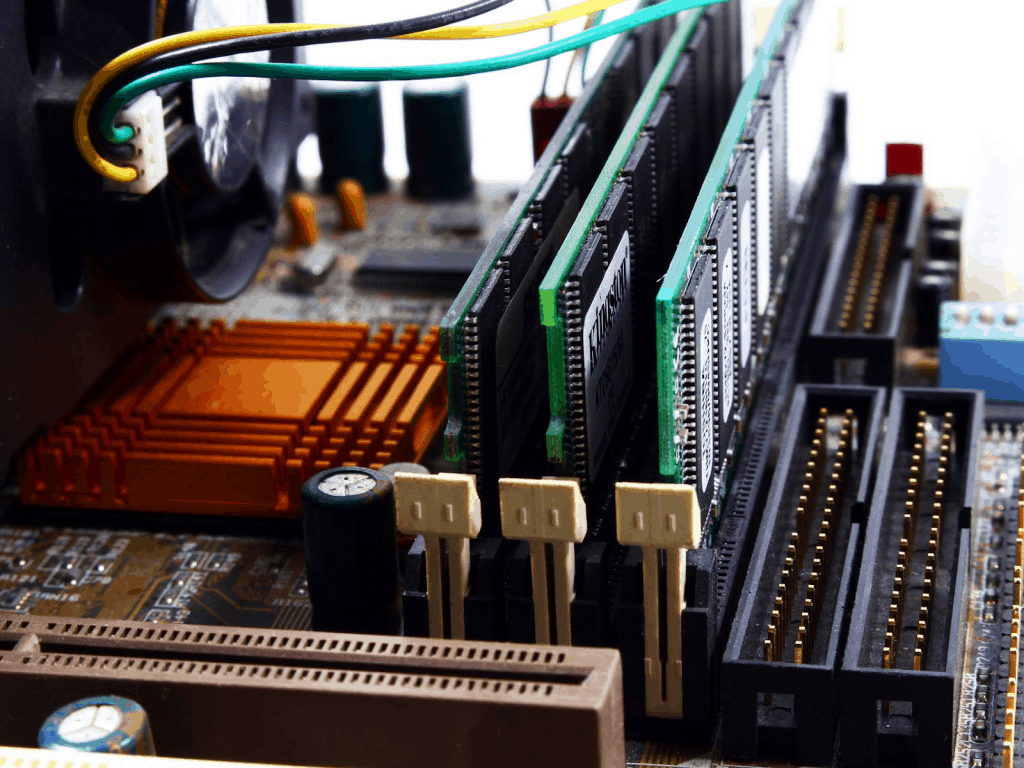Since the first Ryzen CPU release in 2017, AMD has been steadily providing us with new microarchitectures and more things to get excited about almost every year.
All this progress didn’t go unrecognized by the community: AMD overtook Intel in desktop CPU market share in 2021 for the first time in 15 years. It’s safe to assume that the strong performance of Ryzen CPUs played a big part in achieving this milestone.
The range of Ryzen products is perhaps best seen when comparing processors from the same generation but different market segments. Entry-level, mainstream, performance, enthusiast – it seems that AMD offers something for everyone, so what should you go for?
Keep reading our Ryzen 5 3600 vs Ryzen 7 3700x comparison to find out if you’re a mainstream or performance user!
Ryzen 5 3600 vs Ryzen 7 3700x – Quick Comparison
Ryzen 5 3600 is a third-generation mainstream AMD processor that features 7nm-semiconductors to increase clock speeds and overall performance over its predecessor with virtually no additional energy cost.

Pros:
- Solid single-core performance
- Base clock speed comparable with pricier, newer CPUs
- Supports a lot of RAM
- More cost-effective
Cons:
- Fewer cores lead to worse multi-core performance
- Less cache memory
Ryzen 7 3700x is also a third-generation processor, but it’s a part of AMD’s performance segment, making it better suited for running more demanding programs.

Pros:
- More cores and threads mean better multi-core performance
- More cache memory
- Better boost clock speeds
- More power without an extra energy cost
Cons:
- More expensive
- Only marginally better single-core performance
| Features | Ryzen 5 3600 | Ryzen 7 3700x |
|---|---|---|
| Launch date | July 7, 2019 | July 7, 2019 |
| Series (CPU architecture) | Zen 2 | Zen 2 |
| Number of cores | 6 | 8 |
| Number of threads | 12 | 16 |
| Base clock | 3.6 GHz | 3.6 GHz |
| Max boost clock | 4.2 GHz | 4.4 GHz |
| Semiconductor size | 7nm | 7nm |
| RAM speed | 3200 MHz | 3200 MHz |
| L1 cache | 384KB | 512KB |
| L2 cache | 3MB | 4MB |
| L3 cache | 32MB | 32MB |
| TDP | 65W | 65W |
| Max temperature | 95oC | 95oC |
Key specifications
Here are some basic features and specifications to consider when comparing Ryzen 5 3600 and Ryzen 7 3700x.
The number of cores
Even people who are new to PC components, in general, know that cores play a vital role when it comes to CPU performance.
The more cores, the better – that’s the general rule. So when comparing two CPUs, you can usually get a good idea of their processing power, clock speeds, and even price just by looking at their number of cores. Of course, other things come into play, so it’s not as straightforward, but cores are usually the first thing you should be looking at.

In this area, the 3700x is the clear winner with eight cores compared to the 3600’s six. In theory, this would make the 3700x a better choice for things like 3D modeling or running multiple CPU-heavy programs simultaneously.
Multiple threads for better multitasking
Threads go hand in hand with cores to determine how good your CPU will be when it comes to handling multiple processes at the same time.
Cores and threads are typically in a 1:1 or 1:2 ratio, meaning that the most threads a 6-core processor will have is 12.
Both Ryzen 5 3600 and Ryzen 7 3700x have two threads per core, which would mean that the 3600 has 12 threads and the 3700x has 16. Again, the Ryzen 7 3700x is the winner in this category and should definitely be able to handle multiple programs running at the same time more easily.
Base clock speeds
Clock speed is another key performance indicator that allows you to compare two CPUs in a fairly straightforward way.
In simple terms, clock speed refers to the number of cycles your processor can execute per second. It’s measured in gigahertz (GHz), and again, the old “the more, the better” rule applies here as well. However, higher clock speeds without other upgrades (more RAM, more cores, better microarchitecture, etc.) won’t provide the massive performance boost you might expect.
When it comes to base clock speeds, Ryzen 5 3600 and Ryzen 7 3700x are tied at 3.6 GHz. When we get to boost clock speeds, it’s a different story – but we’ll get to that later.
What are their RAM limits and speeds?
Knowing your CPU’s limits when it comes to maximum RAM can be crucial. You don’t want to go to your local tech store excited to add more RAM, only to be informed you’ve reached your maximum and your CPU doesn’t support more than, say, 64 GB.

Here, the 3600 and 3700x are tied at 128 GB RAM. This should be more than enough, even if you’re running programs that require a lot of processing power. This would even be overkill for gaming since going over 32 GB (or even 16 GB, really) wouldn’t result in a performance boost.
Cache memory for quicker processing
Your cache memory is essentially small, fast storage that your CPU uses to retrieve data that it frequently needs to access. Think of it as making it easier for your processor to execute repeating tasks, a shortcut of sorts.
Cache memory is usually split into three levels: L1, L2, and L3. It’s generally accepted that the first level is the most important; it’s the quickest and where your CPU will first check to see if it holds any data. L2 and L3 are not as important and likely won’t have such a big impact on your PC’s performance.
Here, the Ryzen 7 3700x is at an advantage with 512KB compared to 384KB on the L1 cache. On L2, it’s also at a slight advantage: 4MB vs 3MB. They’re equal on L3, but overall, the 3700x takes the win in this category.
Heating up – max temperature and TDP
When you’re dealing with powerful CPUs, temperatures can often be an issue.
More demanding programs require more electricity, and electricity turns into heat inside the processor. The CPU’s cooling system then dissipates this heat to avoid overheating and all the problems that come with it.
To determine what temperatures your CPU is designed to work with, you can check out its TDP (Thermal Design Power) and max temperature. TDP is expressed in watts (W), and it signifies the maximum amount of heat your processor will generate when running heavy applications.
Max temperature is a number that tells you the “critical point” of temperature, which, if exceeded, will start giving your processor problems. Think of it as a temperature limit that you don’t want your CPU to achieve.
Ryzen 5 3600 and Ryzen 7 3700x are tied in this category, with TDPs of 65W and max temperatures of 95oC.
Standout Features
Now, let’s get into a few specific questions that might make a big difference and help you make a more informed decision.
Boost clock speed advantage for the 3700x
We went through base clock speeds – your default CPU speeds when running simple programs.
In a way, the base clock could even be considered your minimum clock speed guaranteed by the manufacturer.
But, when you’re running demanding programs like games on high settings or multiple graphic design programs at the same time, a boost will kick in. This boost will raise your clock speed for a short time, allowing your CPU to provide you with better performance to handle this load.
Ryzen 5 3700x can be boosted up to 4.4 GHz, while the 3600 will increase to 4.2 GHz. This is not a massive difference but provides more context when comparing clock speeds between these two CPUs.
Combined with the number of cores and threads, it demonstrates that Ryzen 5 3700x is definitely the more powerful option.
Is Ryzen 7 3700x overkill for you?
More power is not always better, especially if you don’t need it.
Ryzen 5 3600 is quite a powerful processor – six cores, 12 threads, and a 3.6 GHz base clock speed will be enough for many tasks. As a result, you won’t have issues running even the modern games that are a little CPU-heavy compared to older titles.
And, since you can upgrade with up to 128 GB of RAM, the 3600 can be a solid option for multitasking and working in programs that rely on multiple cores (although the 3700x will certainly be a better fit for this).
Ultimately, it’s debatable whether the upgrade you get with the 3700x is worth the extra cost, especially since you can add a few more bucks and get something from the newer Zen 3 generation.
Conclusion
We hope we’ve managed to illustrate some differences between these two CPUs and make your choice easier.
Our Ryzen 5 3600 vs Ryzen 7 3700x comparison finally comes down to this question: are you looking for a gaming CPU, or will you be multitasking in CPU-heavy programs?
If you’ll be multitasking, the 3700x is the better choice. More cores and more threads are always better for these programs, and the extra cost will likely be worth it.
If you’re looking for a solid gaming CPU without spending too much cash, you’ll be better off with the 3600. Its single-core performance is on par with its more powerful counterpart, and their clock speeds are also pretty close. Of course, if you want that extra power, you can always overclock and enjoy an even better gaming performance.